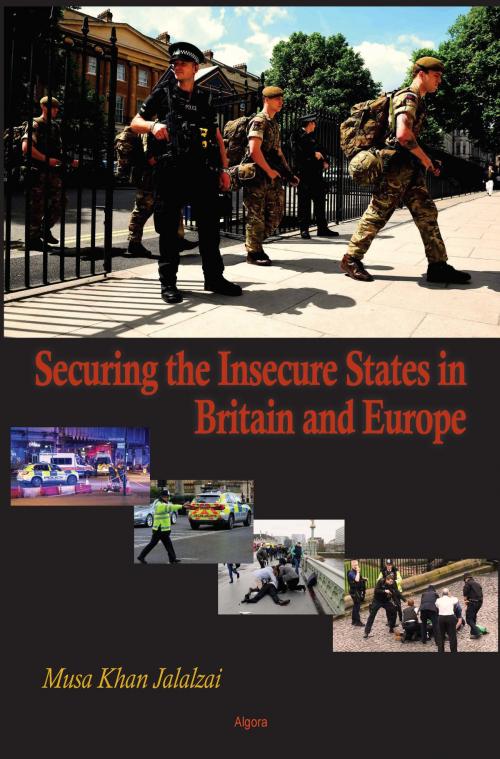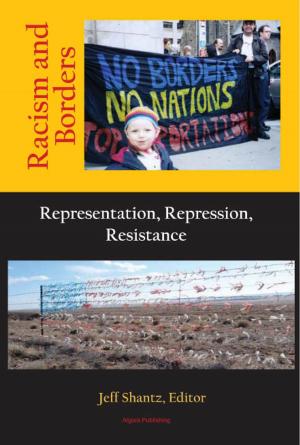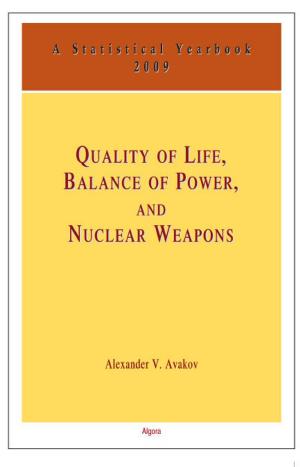Securing the Insecure States in Britain and Europe
Nonfiction, Social & Cultural Studies, Political Science| Author: | Musa Khan Jalalzai | ISBN: | 9781628943023 |
| Publisher: | Algora Publishing | Publication: | October 15, 2017 |
| Imprint: | Algora Publishing | Language: | English |
| Author: | Musa Khan Jalalzai |
| ISBN: | 9781628943023 |
| Publisher: | Algora Publishing |
| Publication: | October 15, 2017 |
| Imprint: | Algora Publishing |
| Language: | English |
The spate of recent terrorist attacks in London, Paris, Brussels and Berlin highlights the security crisis in Britain and the EU member states. The author points to weaknesses in intelligence sharing and cooperation at the law enforcement level. He shows that these shortcomings are both rooted in, and contributing to, misunderstanding and distrust among the EU member states. At the same time, these attacks showed how urgent is the need for strong and professional law enforcement across the continent.
Britain and the EU member states have been engaged in an intense debate over the rise in EU immigration, which has gone hand-in-hand with an increase in organized crime including people trafficking and smuggling as well as terrorist attacks. Europe's habitual calm and reliable law and order are deteriorating, while member states wonder what they sacrificed their sovereignty for, if cooperation is so poor even in the essential area of security?
Meanwhile, the UK has more CCTV cameras than anyone else, monitoring citizens day and night. Even so, notwithstanding the ubiquitous MI6, MI5, GCHQ, MENWITH HILL, and the UK police, Britain still can't prevent attacks. It needs to modernize its surveillance technology and crime prevention systems.
Britain voted to leave the EU in 2016 because the project's poor performance. Its intelligence sharing mechanism was unprofessional, and the attitude of the member states towards Britain was not encouraging. The EU has experienced numerous incidents of violence and terrorism, in which civilian and government installations were targeted. Their complicated intelligence infrastructure also left a negative impact across the continent, all contributing to a deterioration in law and order.
The spate of recent terrorist attacks in London, Paris, Brussels and Berlin highlights the security crisis in Britain and the EU member states. The author points to weaknesses in intelligence sharing and cooperation at the law enforcement level. He shows that these shortcomings are both rooted in, and contributing to, misunderstanding and distrust among the EU member states. At the same time, these attacks showed how urgent is the need for strong and professional law enforcement across the continent.
Britain and the EU member states have been engaged in an intense debate over the rise in EU immigration, which has gone hand-in-hand with an increase in organized crime including people trafficking and smuggling as well as terrorist attacks. Europe's habitual calm and reliable law and order are deteriorating, while member states wonder what they sacrificed their sovereignty for, if cooperation is so poor even in the essential area of security?
Meanwhile, the UK has more CCTV cameras than anyone else, monitoring citizens day and night. Even so, notwithstanding the ubiquitous MI6, MI5, GCHQ, MENWITH HILL, and the UK police, Britain still can't prevent attacks. It needs to modernize its surveillance technology and crime prevention systems.
Britain voted to leave the EU in 2016 because the project's poor performance. Its intelligence sharing mechanism was unprofessional, and the attitude of the member states towards Britain was not encouraging. The EU has experienced numerous incidents of violence and terrorism, in which civilian and government installations were targeted. Their complicated intelligence infrastructure also left a negative impact across the continent, all contributing to a deterioration in law and order.















